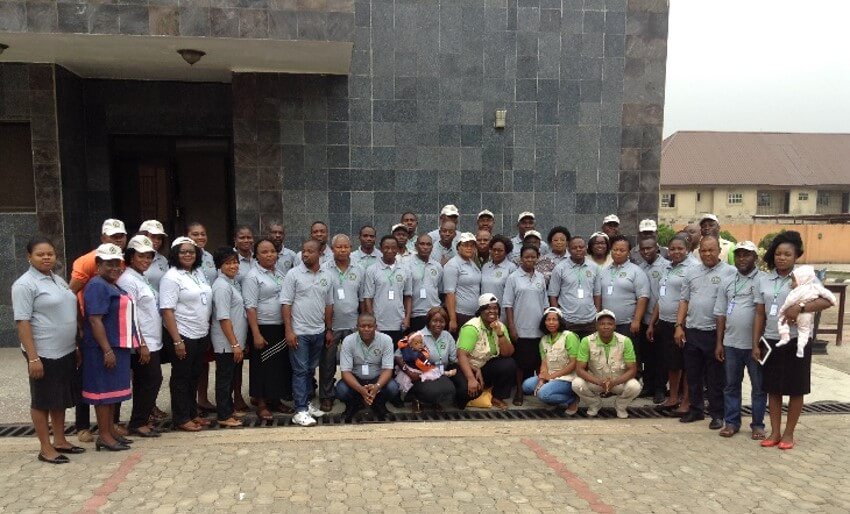
Yams (Dioscorea spp) are among the oldest food crops believed to have originated in the tropical areas of three separate continents; Africa, south-East Asia and South America. In West Africa, man began to gather yams for domestic use as early as 50,000 BC. Yam is not only a vital staple food, but is considered king crop, having great ethnic as well as agricultural importance in West Africa, where much ritual has developed around its production and utilization. Various preparations of yam are still the choice food of millions during ceremonies and festivals and it is an indispensable bride price in Nigeria. Yam is an important crop for millions of rural poor producers, processors, and consumers in many countries in the world, particularly in West and Central Africa (WCA). It is estimated to provide 60 million people with an average of 200 kcal per day. It is also clearly a major source of revenue for many rural poor people including a good proportion of women as producers, processors, and traders.
The goal of NRCRI’s yam research has been to enhance the adoption of improved technologies by farmers, and thus contribute to a sustainable increase in productivity of yam-based systems.
Yam description and classification
Yams are annual or perennial tuber-bearing and climbing plants. The six dominant important edible species out of over 600 identified species within the genus Dioscorea are:
a) D. rotundata (white yam)
b) D. Cayenensis (Yellow yam)
c) D. alata (water yam)
d) D. esculenta (Chineese yam)
e) D. dumentorum (trifoliate or bitter yam)
f) D. bulbifera (aerial yam)
Basically yams provide carbohydrates and are high in vitamin c, dietary fibre, vitamin B6, potassium, and manganese in human diet.
Strategic objectives of the research programme
(1) Expand the demand for yams (increased number and diversity of end-products from yams, better understanding of markets and consumption patterns)
(2) Increase productivity of yam cultivation (increased yield, lower storage losses, and lower costs of production)
(3) Contribute to enhanced capacity for research on yams
(4) Promote partnerships with other stakeholders in yam research and development
(5) Promote awareness of the opportunities and challenges of the yam sector and progress being made in research for development
(6) Engage in policy dialogue towards increased support for the yam sector
Research focus
1. Agronomy, breeding and crop improvement – The main goal under this focus is to increase yam productivity whilst reducing production costs and environmental impact by developing and deploying end-user preferred varieties with higher yield, greater resistance to pests and diseases and improved quality in Nigeria.
2. Integrated soil, crop, and pest management in yam systems – we focus on sustainable management of yam crop in terms of crop health, soil fertility and production profitability. We apply knowledge from breeding, farming systems, physiology, soil fertility management among others for yam cultivation.
3. Post-harvest- We investigate on yam product diversification and increased market opportunities. We prioritise trait preferences with key stakeholders (including producers, retailers, processors and consumers). We evaluate gender impact on value chains, considering demographic and lifestyle trends. We focus on understanding of different trait and food product preferences by different social groups and value chain actors.
4. Policies, institutions and markets – The research on policies, institutions and markets seeks about improvement in outcomes of improved food security, poverty reduction, enhanced nutrition and health as well as sustainable management of biological resources. Our research contribute to technology adoption and sustainable intensification, cross cutting gender initiatives and capacity strengthening, We address issues on ex- ante adoption of novel technologies and value chain analysis.
Institutional platform for output delivery in yam research
We target poverty reduction and increased food security through the development of relevant and sustainable technologies for stakeholders involved in root and tuber crops. NRCRI, in partnership with collaborators, has released 31 yam varieties in Nigeria. This feat is a testament to our multi-disciplinary approach to addressing our demand driven problems. The multidisciplinary team includes staff and consulting experts in the following disciplines: genetics and breeding, biotechnology, plant physiology, entomology, food science and nutrition, environmental science, biochemistry, agronomy, bioinformatics and statistics. We draw our strength from the interactions that lie at the core of the yam research team, and training programs. In addition, NRCRI boasts of established infrastructures like field, multi-site stations in diverse agro-ecologies, offices, laboratory, yam barns, and a yam screen house. NRCRI has delivered project deliverables through her intervention in multi consortium and international projects on yam. At the moment the yam breeding team is a stakeholder in active projects like NSF-Yam Basic Research for Enabled Agricultural Development , AfricaYam , Yam Improvement Food Security in West Africa (YIIFSWA) and RTBfoods . The findings from these current projects have refined our product profile development and delivery capacity.

Dr. Jude Obidiegwu
Assistant Director/Coordinator
Email: jude.obidiegwu@nrcri.gov.ng
info@nrcri.gov.ng
TELEPHONE
ADDRESS
Km 8 Umuahia-Ikot Ekpene Road P.M.B 7006 Umuahia Abia State Nigeria
